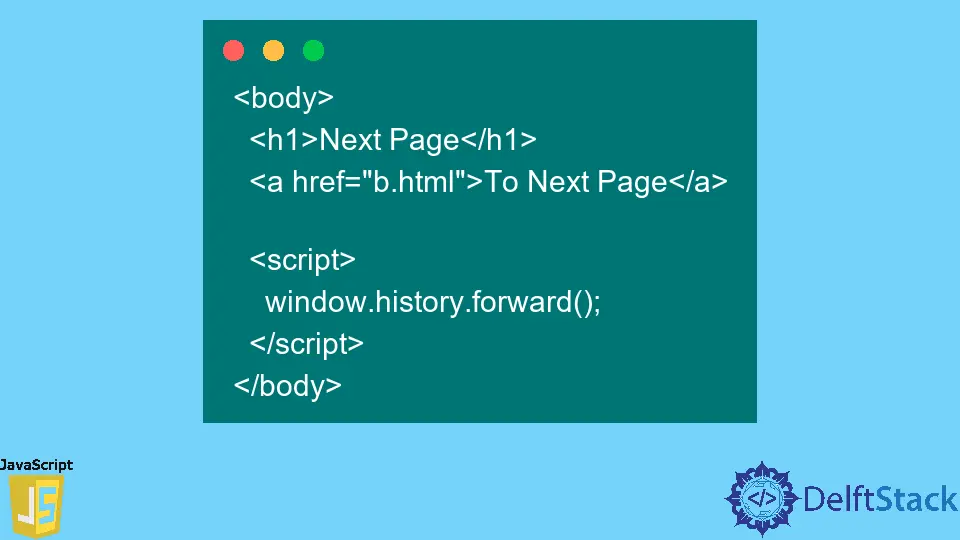The history.forward() Function in JavaScript
- Understanding the History Object
- Using the History.forward() Method
- Practical Applications of History.forward()
- Conclusion
- FAQ

Navigating through web pages is a fundamental aspect of user experience, and JavaScript offers a handy tool for this purpose: the history.forward() function. This function allows developers to programmatically move the user forward in their browsing history, providing a seamless navigation experience. Understanding how to use this function can enhance your web applications, making them more interactive and user-friendly.
In this article, we will explore the history.forward() function in JavaScript, its syntax, and practical applications to help you effectively navigate the browser. Whether you’re a beginner or an experienced developer, this guide will equip you with the knowledge you need to implement this function in your projects.
Understanding the History Object
Before diving into the history.forward() function, it’s essential to understand the History object in JavaScript. The History object is part of the Window interface and provides access to the browser’s session history. This history consists of the pages the user has visited in the current tab or window. The History object allows you to manipulate this history, enabling functions such as moving back and forward through the user’s browsing history.
The history.forward() method is a simple yet powerful tool that moves the user forward by one page in their history, similar to clicking the forward button in a browser. This method is particularly useful in single-page applications (SPAs) or when you want to control navigation without refreshing the page.
Using the History.forward() Method
The syntax of the history.forward() function is straightforward:
history.forward();
When this method is called, it will navigate the user to the next page in their browsing history. If there’s no page to move forward to, the method does nothing. It’s important to note that this function does not accept any parameters.
Here’s a simple example of how you might implement this in a web application:
<!DOCTYPE html>
<html lang="en">
<head>
<meta charset="UTF-8">
<meta name="viewport" content="width=device-width, initial-scale=1.0">
<title>History Forward Example</title>
</head>
<body>
<button onclick="goForward()">Go Forward</button>
<script>
function goForward() {
history.forward();
}
</script>
</body>
</html>
Output:
When the button is clicked, the browser will navigate forward in history if possible.
In this example, we create a simple HTML page with a button. When the button is clicked, the goForward() function is executed, which calls history.forward(). This will navigate the user to the next page in their history, if available. This method can enhance user experience by allowing smoother transitions between pages without requiring manual navigation.
Practical Applications of History.forward()
The history.forward() function can be particularly beneficial in various scenarios. For instance, in single-page applications, where content is dynamically loaded without refreshing the entire page, using history.forward() can help maintain a consistent user experience. It allows users to navigate through different states of the application without losing their place.
Another practical application is in forms or multi-step wizards. If a user has navigated back to a previous step and wants to return to the next step, you can implement a button that utilizes history.forward() to easily move forward in the process. This can significantly improve the usability of your web application by making navigation intuitive and straightforward.
Consider a multi-step form where users can go back and forth between steps. You can use the history.forward() function to help users return to the next step seamlessly, enhancing their overall experience.
Conclusion
The history.forward() function in JavaScript is a powerful tool for web developers looking to enhance navigation within their applications. By understanding how to leverage this function, you can create a more fluid and user-friendly browsing experience. Whether you’re working on a single-page application or a more complex web project, incorporating browser navigation methods like history.forward() can significantly improve usability. As you continue to explore JavaScript, remember that mastering these small functions can lead to a more polished and professional web application.
FAQ
-
What does the history.forward() function do?
The history.forward() function moves the user forward one page in their browsing history. -
Can history.forward() take parameters?
No, the history.forward() function does not accept any parameters. -
When should I use history.forward()?
You should use history.forward() when you want to programmatically navigate users forward in their browsing history, especially in single-page applications or multi-step processes. -
What happens if there is no page to go forward to?
If there is no page available to move forward to, the history.forward() function does nothing. -
Is history.forward() supported in all browsers?
Yes, history.forward() is widely supported in all modern browsers.
Shiv is a self-driven and passionate Machine learning Learner who is innovative in application design, development, testing, and deployment and provides program requirements into sustainable advanced technical solutions through JavaScript, Python, and other programs for continuous improvement of AI technologies.
LinkedIn